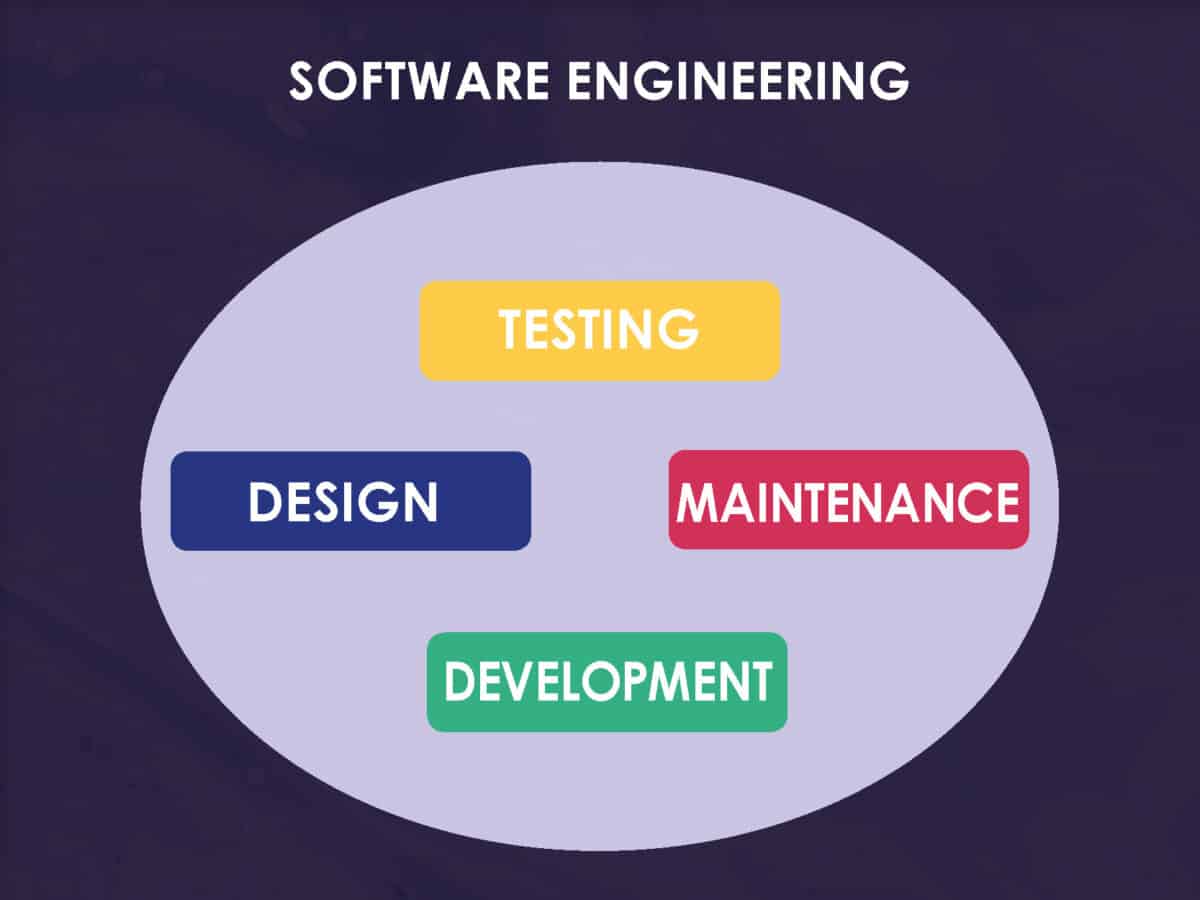
14 min read
Software Development Manager vs Software Engineering Manager: How Different Are These Roles?
Introduction
There are a bunch of different manager roles across software development companies. And probably two of the most confusing of them are software development manager vs. software engineering manager (SDM and SEM correspondingly).
Reading different sources, you can meet the next variations on how they’re correlating:
- Software development manager is the same as software engineering manager;
- Vice versa, these roles are fully independent of each other and cover completely different areas of competence;
- Software development manager reports to software engineering manager;
- Software engineering manager reports to software development manager;
- Many other more or less believable ideas.
The truth is that these two roles are related deeper and more complex than it seems at the first glance. Yet they’re still very different. And the proper understanding of these nuances will help you hire the person that will be playing one of these roles (based on your needs) in the best possible way.
Let’s research the topic and find the most accurate definitions of both these roles; make a side-by-side comparison; describe the moments when you should hire whether software development or software engineering manager; take a look at some examples of SDM and SEM job descriptions.
And, of course, we’ll answer the title question — what’s the difference between these two roles?
Software Development Managers and Software Engineering Managers: Definitions and Comparison
Software Development and Software Engineering
First, let’s delve deeper into all the concepts these roles address. This will help us build our own definitions, clearly different and easily understandable.
Let’s start by discovering what software development and engineering concepts are within our scope.
– Software engineering is the discipline of designing, creating, testing, and maintaining software products and applications using a systematic and quantifiable approach. Engineering is focused more on resources, teams, goals, and processes. The goal of software engineering is to create software that meets the needs of users, is easy to use, and can be maintained and improved over time.
– Software development is building software applications for different platforms and systems. The process is focused more on a technical aspect — coding, deploying, etc., as well as on certain developers and their performance. Software development is driven by the needs of end-users and customers and often involves iterative and incremental development cycles to refine the product over time.
The first concept is much wider than the second one, as you can see, and software engineers tend to be something higher than software developers. Below, we’ve illustrated a correlation between them using Euler diagrams.

Software Development Manager: Definition, Roles, and Responsibilities
Skills required: сustomer service; digital; troubleshooting; Amazon Web Services; deployment; databases; Java or any other back-end programming language.
A software development manager is a managerial role, an expert responsible for leading and managing a team of software developers and engineers to deliver software products and applications. The role involves overseeing the entire software development process, from planning and design to development, testing, and deployment.
A common list of duties includes arranging the budget required for programming, participation in new employee hiring and training, as well as working with bugs, updates, etc. All these actions are aimed at better coordination between the team and customer, more efficient resource allocation, and smoother processes.
Below is a more detailed list of SDM’s main working responsibilities:
- Development team management. Starting with the identification of the skills required for a certain software development project, the manager then assigns different tasks upon their skill sets. This type of duty is highly time-consuming and requires both team and peer-to-peer meetings on a very regular basis.
- Development toolset management. Each software development project requires dozens of special tools to be always up and running. Among them is the software for CI/CD, IDE, cloud storage, libraries, repositories, version control, etc. And the manager must always keep their working capacity under control, as well as track all the activities within the working environment.
- Hiring new developers. Having years of experience working with developers, a software development manager is a good examiner for your potential employee. The process can easily be too long and expensive, this increases the chance for success a lot.
- Project progress monitoring. The software development process is always full of unexpected things. Each time manager must handle these issues in order to avoid deadline delays. Apart from a project manager who’s controlling the progress on a daily basis, this is more about keeping the planned software lifecycle unchanged with less accuracy.
- Quality control. Rather than QA engineers, the software development manager controls the quality of the software under development by creating guidelines for testing engineers as well as by employing proper quality assurance processes.
- Participation in architectural validations. Making certain architectural decisions might be very difficult and risky. The software development manager analyzes each new revision of the architecture design in order to ensure they’re efficient and support further scaling of the system.
- Driving product strategy. Most of the teams creating software products have their own product teams. Despite this fact, software development managers are often involved in product strategy and have a deep knowledge of the product they’re developing. This means regular communication with the developers, users, product owners, and other stakeholders.
- Coding. Yes, this role requires coding from time to time. This means not just completing regular tasks but closing challenging ones your team members failed; regular code reviews; detecting and eliminating bugs.
Software Engineering Manager: Definition, Roles, and Responsibilities
Skills required: advanced communication; high emotional intelligence; big picture thinker; decision maker; highly agile to changes; leader by example.
A software engineering manager is a role providing technical leadership and guidance to ensure that the team follows best practices and adheres to software development processes. This is a resource manager who is accountable for assuring the project has enough of them to be delivered on time, in full, and with the required level of quality.
As a result, among the engineering manager’s duties are day-to-day resource allocation, technical policies reviewing and deployment, communication, and reporting.
And now, let’s take a closer look at SEM’s duties:
- Managing and coordinating engineering operations. One of the main SEM’s duties is managing the overall engineering operations, including the design, development, and testing of software products. This involves ensuring that software projects are completed on time and within budget and that the team follows established engineering practices and methodologies.
- Reviewing and improving engineers’ performance. The manager is responsible for reviewing and assessing the performance of individual engineers and the team as a whole. They may provide coaching and mentorship to help engineers improve their skills and performance, and identify areas where training or development is needed.
- Communicating with stakeholders. Communicating efficiently with product owners, customers, and other teams involved, the software engineering manager role ensures that software development projects are aligned with business objectives and requirements.
- Setting roles and responsibilities. Delegating tasks and responsibilities, you must ensure that team members have the necessary skills and resources to complete their work.
- Recruiting and hiring new engineers. With years of both technical and managerial experience, a software engineering manager is a role that can clearly identify job requirements, review resumes and applications, conduct interviews, and finally determine the most skilled candidates for a role of a new team member.
- Improving motivation and resolving conflicts. A software engineering manager must create a positive and productive work environment for the engineering team. Eliminate conflicts by early identification and addressing their sources. Promote collaboration and teamwork, and provide support and guidance to your senior engineers when needed.
Software Development Manager and Software Engineering Manager: How Different Are These Roles?
It’s time to answer the title question, as promised. To be honest, it wasn’t easy to determine the truth. The problem lies in the fact that each company is following its own vision of what these roles are.
After reading maybe dozen of different versions, as well as conversations with several experienced managers working in different companies, I’ve finally brought it all together. Now, I’ll give you a clear and understandable explanation.
- Within the smaller teams, including startups, usually there are no dedicated roles for both software development and software engineering managers.
- Within the bigger teams like midsize businesses or Enterprises, it depends on a certain org structure. Some companies don’t differentiate these two roles, while others do. In some cases, for example, these roles could be combined.
For those who want to delve deeper into the topic, we recommend the book “Cracking the PM Interview: How to Land a Product Manager Job in Technology” by Gayle Laakmann McDowell and Jackie Bavaro.
| Role→Comparison Factor↓ | Software Development Manager | Software Engineering Manager |
| Primary focus | Managing processes and performance | Managing people |
| Reports to | CIO, CTO, Director of Development, Software Engineering Manager | CIO, CTO, Director of Development |
| Min. years of experience | 4+ | 5+ |
| Degree | Bachelor (71.3 %) | Bachelor |
| Communication skills level | +++ | +++ |
| Leadership | ++ | +++ |
| Problem-solving skills | ++ | +++ |
| Spending on technical tasks | 35% | 50% |
| Spending on administrative tasks | 15% | 15% |
| Spending on management | 35% | 25% |
| Spending on recruiting | 15% | 10% |
When to Hire a Software Development Manager or Software Engineering Manager
The decision to hire a software development manager or software engineering manager depends on the specific needs of your company and project. Below you can find some factors to consider when deciding which role to hire.
Software Development Manager Should Be Hired…
- …for technical software development projects that require strong expertise and guidance.
- …onto the teams that lack a strong leader but require them for coordinating efforts and keeping the project triangle parameters unchanged.
- …for projects that require significant communication with stakeholders — customers or product owners. This is quite a common situation in the eCommerce domain, for example.
- …in a company that lacks well-defined processes but is ready to improve them. This is almost every young tech company with a certain operational history enough for detecting weaknesses in their workflows.
- …for projects that require code quality and architecture review in order to evaluate their quality. This is happening when a company takes an ongoing project full of legacy code.

Software Engineering Manager Should Be Hired…
- …for large and complex software development projects that require strong project management and technical skills. For example, sometimes Enterprise-level software development projects come to small IT outsourcing firms. Such cases force small companies to hire new staff massively, including software development managers.
- …when your team is in strong need of a mentor to improve its processes and methodologies. This means the company lacks a smart leader in-house and looks for someone who’ll help them boost efficiency.
Ultimately, the decision to hire a software development manager or software engineering manager will depend on the specific needs of the organization and the software development project. It’s important to carefully evaluate these needs and identify which role is the most effective in achieving business goals.
Conclusion
Let’s recap our findings.
- There is no single understanding of how software development manager and software engineering manager roles must correlate.
- It always depends on a particular vision of the organizational structure within your company.
- Basically, engineering is a more sophisticated and comprehensive practice than development, which includes the development process itself. This means the development manager should report to the engineering manager.
- Along with that, SDM is a more technical role once SEM is more business-related.
- Above you can find some common scenarios when you should hire a software development or a software engineering manager.
- Expert Remote is the fastest way to hire software engineering or software development managers. We have 100+ vetted SEMs and SDMs on our platform. Contact us to learn more.
Remote tech teams & the future of work blog
Remote tech teams & the future of work blog
Your form has been successfully submitted.

